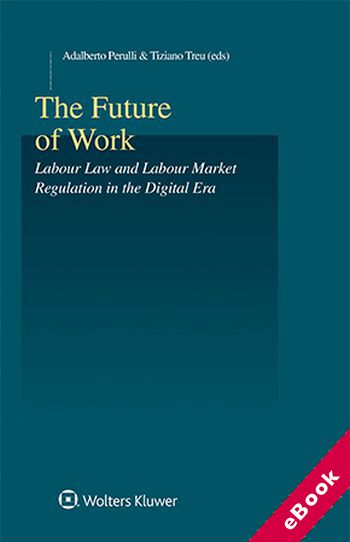
The device(s) you use to access the eBook content must be authorized with an Adobe ID before you download the product otherwise it will fail to register correctly.
For further information see https://www.wildy.com/ebook-formats
Once the order is confirmed an automated e-mail will be sent to you to allow you to download the eBook.
All eBooks are supplied firm sale and cannot be returned. If you believe there is a fault with your eBook then contact us on ebooks@wildy.com and we will help in resolving the issue. This does not affect your statutory rights.
The Future of Work is the most expansive and comprehensive book of its kind. It is a collection of expert essays that furnishes an abundance of well-thought-out material for comprehending the consequences of digitalization for the labour market and industrial relations. Far from being solely a technological issue, digitalization has broad implications in the social, labour and economic spheres. It leads to perils and opportunities for the workforce, and thus labour law must establish effective ways to both protect workers and allow them to profit from new technological developments.
What’s in this book:
Being cognizant of the fact that only an international perspective can make it possible to face the challenges of the present (and the future), renowned authorities from the International Labour Organization and the International Society for Labour and Social Security Law, as well as outstanding labour law professors, examine in depth the following issues:
An international team of contributors deals with issues from various overlapping perspectives and points of view, combining aspects of labour law, commercial law, corporate governance, and international law.
How this will help you:
Accentuating the need to adapt, primarily through the right to training, work, and professionalism with respect to the new technological landscape, the book draws on legislative, judicial, and theoretical initiatives suggesting ways of responding positively to the requests for protection that arise in the new forms of production. A uniquely valuable tool for study and reflection for policymakers and academics, the book will be appreciated by entrepreneurs, managers, consultants, corporate lawyers, judges, human rights experts, and trade unionists who are interested in the issues of labour, industrial relations, and social rights in European and international contexts.